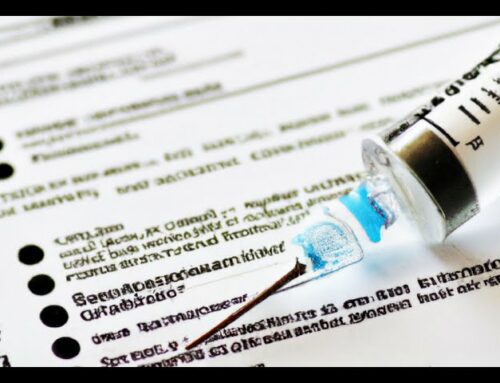Vaccine mandates have been a controversial issue, and Frontline Law has represented hundreds of clients in challenging them, with some success.
One recent case was that of Wright v Minister for COVID Response, where we successfully represented a group of family carers in challenging the vaccine mandate they were subject to.
Vaccine mandates affect people in different, and often significant, ways. Facing becoming vaccinated or losing your job, is not a free choice. The Courts have agreed on multiple occasions that a mandate is coercive.
This blog post will outline why the family carers prevailed in Wright, and what Frontline Law is doing next to help affected family carers be reimbursed for the harm they experienced.
Background
It is important to view the care and support worker case in light of the previous family carers litigation that has occurred across the past twenty years, to understand the full impact that the vaccine mandate had on family carers.
Family carers are people who look after their own family members. This is hard work, but critically important. Without having been part of an affected family, it is difficult to understand what it is like to care for a disabled family member. Family carers are dedicated people who are acting from a place of love and compassion.
To care of their family member, a family carer often needs to give up work. If they didn’t do this, the family member would often end up institutionalised or reliant on external care, which would not be good for anyone – including the taxpayer.
Prior to 2013, the Ministry of Health did not fund any care or support services provided by family members residing in the same house as the disabled person. In 2012, the Court of Appeal ruled that this policy was discriminatory on the basis of family status as external carers were paid to provide care, but family members providing the same care, were not. It was also found to be inconsistent with the New Zealand Bill of Rights Act 1990. The Government’s attempts to appeal the decision to the High Court and the Court of Appeal, were unsuccessful.
In 2013 the Government implemented Part 4A of the New Zealand Public Health and Disability Act 2000. This allowed the Government to continue to discriminate against carers based on family status whilst preventing them from making a complaint about a breach of their human rights. Some family carers were provided with support, however if the disabled person was a child under 18 years or a spouse, they would not receive any financial compensation for their work.
In 2018, the Government announced they would repeal Part 4A. This didn’t occur until September 2020 – two years later. Finally, family carers were to be treated the same as other care and support workers.
Approximately one year later, these family carers, some of whom had fought for over 20 years to be compensated for the additional care and support they provide to their disabled family member, were required to be vaccinated or lose that compensation.
The Vaccine Mandate
The Government implemented the COVID-19 Public Health Response (Vaccinations) Order in 2021 (The Order), requiring affected persons to be vaccinated to carry out work. In October 2021, care and support workers were included in the Order.
Initially, the definition of care and support worker in the Order, excluded family carers. The definition read (emphasis added):
Care and support worker means a person employed or engaged to carry out work that includes going to the home or place of residence of another person (not being the home or place of residence of a family member) to provide care and support services.
Public health advice provided to Chris Hipkins, who at the time was the Minister for COVID-19 Response was that for family arrangements, “current public health measures may be adequate given the potential for the person receiving care to be a lower risk vector for transmission to the community”.
Yet, soon after, Minister Hipkins decided to include family carers in the Order. On 6 November 2021, Minister Hipkins changed the definition of care and support worker to remove the exception for carers working in the home or place of residence of a family member. The new definition was:
Care and support worker means a person employed or engaged to provide care and support services within a home or place of residence.
Minister Hipkins was required to comply with the empowering legislation; the COVID-19 Public Health Response Act 2020 (the Act). The Act required Minister Hipkins to have regard to advice from the Director-General about the risks of the outbreak or spread of COVID-19 and measures that are appropriate to address those risks.
Minister Hipkins also had to have been satisfied the inclusion of Family Carers was a justified limit on the rights and freedoms in the New Zealand Bill of Rights Act 1990, and was appropriate to achieve the purpose of the Act (such as to prevent or limit the risk of infection or spread of COVID-19).
The amended definition remained in place until the Order was revoked on 26 September 2022. This means family carers were required to be vaccinated to be paid for carrying out care and support work, for nearly a year.
Our Initial Work
When we were asked to look into this matter, it was difficult to see how the Government could justify requiring family carers to be vaccinated.
This was because the risk of spreading COVID-19 would usually be the same regardless of whether the family carer chose to be vaccinated, because the carer would be living with or visiting their family member any way. The only difference would be the loss of the modest financial support which was important to the welfare of the family. In some instances, preventing a family member from providing care services could result in adding an additional carer into the home, even if this external carer was vaccinated this would increase the risk of transmission of COVID-19.
To strengthen our case, we needed to obtain more information about why the decision was made and undertake legal research on previous case law; including to see whether the Minister’s decision had previously been challenged.
The Employment Court Decision
Before we could file a legal challenge to the Minister’s decision, we needed to check whether a challenge had already been made. There was an employment case in early 2022, named CSN v Royal District Nursing Service. This was a claim in employment law on behalf of a family carer who was providing care and support services to a family member they resided with. We acknowledge the great work of Ashleigh Fechney, who led the CSN litigation.
The outcome of CSN was that the Employment Court interpreted the definition of “care and support worker” in a way that excluded the family carer. The reason for this was that the Court considered it absurd that the Government should require a family carer to be included in the vaccine mandate. The Court stated, “an interpretation which leads to this result is absurd and cannot have been intended”.
While we agreed with the Employment Court that this would be absurd, there were two reasons we continued analysing the decision. First, sometimes the Government does absurd things. Second, the exception that had excluded family carers from the vaccine mandate had been specifically removed, which caused us to believe this was not an oversight but an intentional decision. The Court in CSN did not have evidence of the Minister’s intention in making the decision, as the Government were not a party to the proceedings.
Further, to be entitled to lost wages or compensation, each family carer who had been an employee would have to raise a personal grievance within 90 days of their last day of employment. This was likely to have passed since the decision was released. There are also family carers who are not under an employment relationship who would be unaffected by the decision in CSN.
While the decision in CSN was a good result, and a move in the right direction, there was still work to be done.
Building the Case
In June 2022, to understand why the exception that had excluded family carers from the vaccine mandate was removed, an official information request was made to the then current COVID-19 Response Minister, Dr Ayesha Verrall. This was a request for the public health advice received and any other information used, in making the decision.
In August, Dr Verrall released a briefing paper. The briefing paper stated that the reason for the decision was:
- To be consistent with the Government’s overall policy of having a workforce that is vaccinated against COVID-19; and,
- Consistency with the Family Carers’ litigation in treating Family Carers the same as other care and support workers.
As the briefing failed to contain any reference to public health advice, Dr Verrall was again asked for this, and a further response was published on 12 October:
Public health advice was received in relation to the inclusion of in-home carers in the original order, however, as the change involved the removal of an exception based on family status rather than the introduction of a new type of work, specific public health advice was not obtained beyond the public health advice from the Director-General contained in the health report provided.
It was clear that Minister Hipkins had intended to extend the vaccine mandate to include family carers, but public health advice on this specific issue was not received.
On 9 August 2022, having considered the implications from the requests, and CSN, we wrote to Dr Verrall requesting an urgent review of the Order and its revocation or amendment.
Whilst the letter was acknowledged, no other response was received. On 2 September 2022, Frontline Law filed and served judicial review proceedings on behalf of the applicants, and against the Minister for COVID-19 Response and the Attorney General.
Proceedings Commenced
Discussions with the Government commenced. Despite failing to respond to the letter, they eventually engaged with us once proceedings were filed.
The Government quickly conceded that the Minister did not receive public health advice in his decision to include family carers in the Order, which meant the decision was invalid.
In judicial review proceedings, remedies are limited. Examples include the ability of the Court to set aside the decision, order the decision-maker to re-make the decision, and order declarations. Compensation cannot usually be awarded in judicial review proceedings.
In our statement of claim, we had included several grounds of review. For instance, that Minister Hipkins’ decision was irrational in that no reasonable decision-maker could have made that decision, and that the decision was an unjustified limitation on rights.
However, the relief ultimately sought was a declaration that the definition of “care and support worker” was invalid, as well as an order setting aside the definition of “care and support worker”. This was in regard to Minister Hipkins’ decision to extend the vaccine mandate to include Family Carers.
As the Order was revoked soon after proceedings were filed, it was unnecessary to pursue an order setting aside the Amended Definition. The Crown disagreed with some of our claims, including the irrationality ground of review. However, they ultimately agreed to a declaration that the decision was invalid. This was because it was clear that Minister Hipkins did not have enough information before him to make the decision to include family carers in the Order, as he did not receive public health advice.
The Crown had sought a second declaration that the definition of “care and support worker” in the Order, as it was from 6 November 2021 until it was revoked in September 2022, did not include Family Carers. The Crown sought to create consistency with CSN and maintain the validity of the amended definition.
The High Court Decision
After the Parties agreed to relief, a hearing was set down so the Court could consider whether it was appropriate to grant the two declarations. It was a short hearing; no evidence was prepared by either party, and the Court was limited to the analysis of the relief agreed.
Justice Van Bohemen agreed to granting the first declaration to make the legal position clear, noting that the Government had accepted the decision was not properly made and had indicated they were taking steps to recompense affected family carers.
The Judge declined to grant the second declaration noting that the Order had been revoked and that irrespective of the decision in CSN it was clear the Minister intended to include family carers in the Order. The amended definition of care and support worker could not be interpreted to include family carers.
This achieved the outcome sought by the applicants; to hold the Government accountable for the decision and ensure a pathway for recompense.
The judgment was released on 10 March 2023, and can be read in full here.
What is next?
We have continued to ask the Government how affected family carers will be reimbursed for lost income, but there has been no clear decision yet.
At this time, we are uncertain which family carers the Government will reimburse and how this will happen.
If the Government continues to fail to reimburse affected family carers, there may be legal avenues available. Some of these legal options have a short time limit, and it is important not to delay.
Frontline Law are doing important work to categorise family carers and assess varying claims. If you are a family carer who was impacted by the vaccine mandate, you can get in touch with us here.
This blog post is general in nature and should not be relied on as legal advice.





